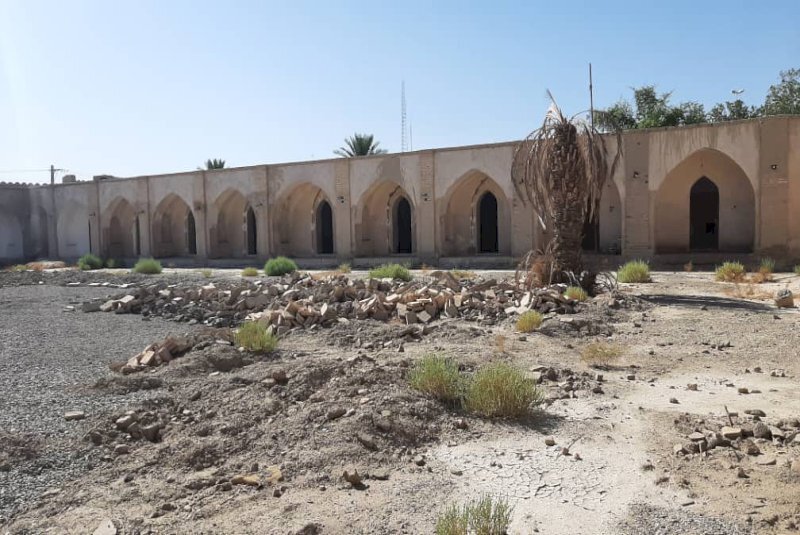19th-century casern being restored

TEHRAN – Restoration work has commenced on a famed 19th-century casern in southeast Iran.
The former casern is part of the 19th-century Nasseri Castle, which is located in Iranshahr, Sistan-Balouchestan province.
A budget of 3.5 billion rials (about $12,000) has been allocated to the project, Iranshahr’s tourism chief Rahman Rigi said on Saturday.
The project seeks to restore and revive the historical structure for use as a tourist attraction in the area, the official mentioned.
One of Iran’s largest brick monuments, Nasseri Castle is an important part of the history and identity of Iranshahr as well, the official noted.
Therefore, the monument needs constant maintenance and restoration, he added.
The Qajar-era (1789-1925) Nasseri Castle, which is one of the main tourist attractions in Sistan-Baluchestan province, has been inscribed on the national heritage list.
From ancient to modern times, defensive walls have often been necessary for cities to survive in an ever-changing world of invasion and conquest.
Fortresses were designed primarily to defend territories in warfare and were also used to solidify rule in a region during peacetime.
Many of the fortifications of the ancient world were built with mud brick, often leaving them no more than mounds of dirt for today’s archaeologists.
In ancient times, according to Encyclopedia Britannica, the Baluchistan region provided a land route to the Indus Valley and the Babylonian civilizations. The armies of Alexander the Great marched through Baluchistan in 326 BC on their way to the Hindu Kush and their return march in 325 experienced great hardships in the region’s barren wastes.
ABU/AFM
